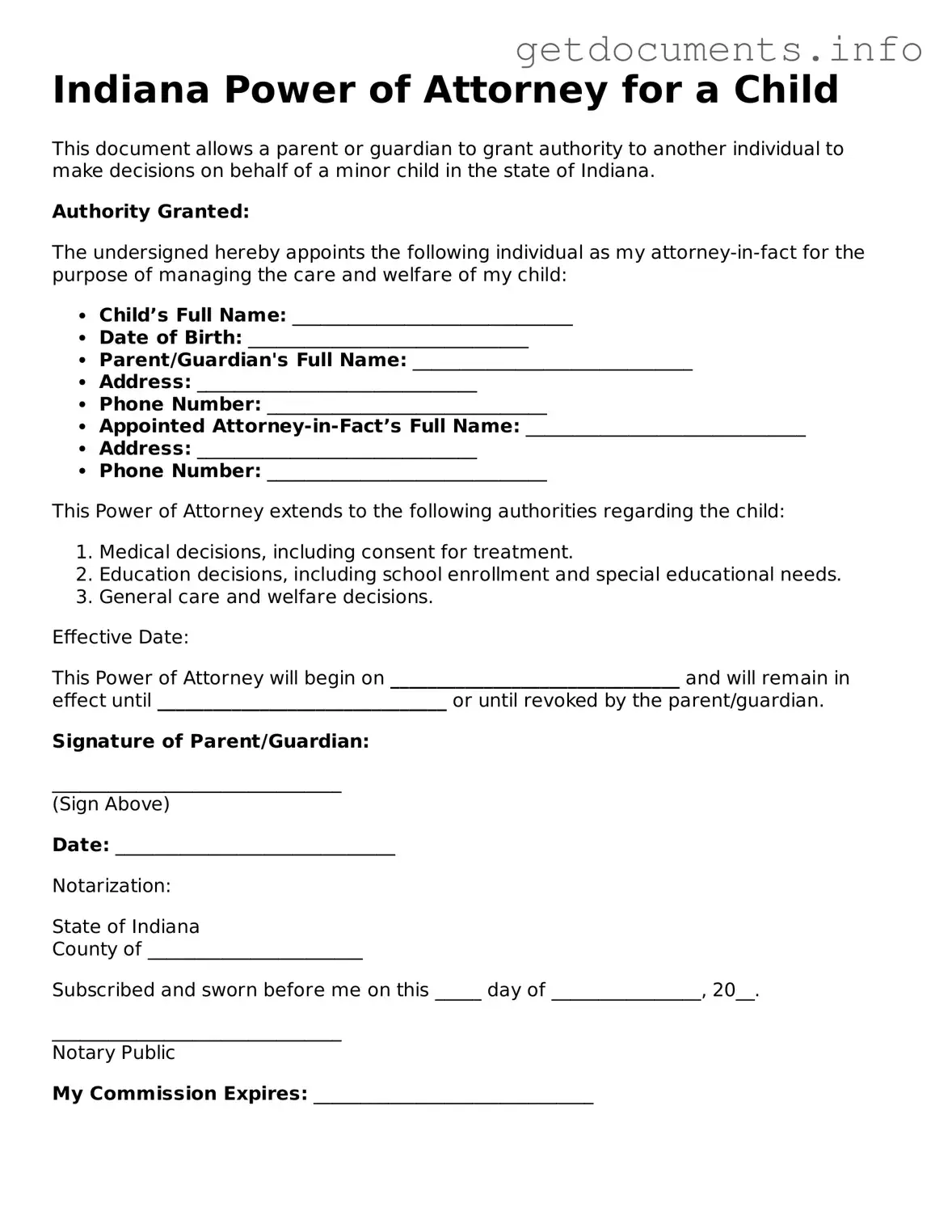Free Power of Attorney for a Child Template for Indiana
The Indiana Power of Attorney for a Child form is a legal document that allows a parent or guardian to designate another individual to make decisions for their child in specific situations. This form is essential for ensuring that a trusted person can act on behalf of the child when the parent or guardian is unavailable. To take the next step in securing your child's well-being, consider filling out the form by clicking the button below.
Access Power of Attorney for a Child Editor

Free Power of Attorney for a Child Template for Indiana
Access Power of Attorney for a Child Editor
Got places to be? Complete the form fast
Fill out Power of Attorney for a Child online and avoid printing or scanning.
Access Power of Attorney for a Child Editor
or
⇩ PDF File
